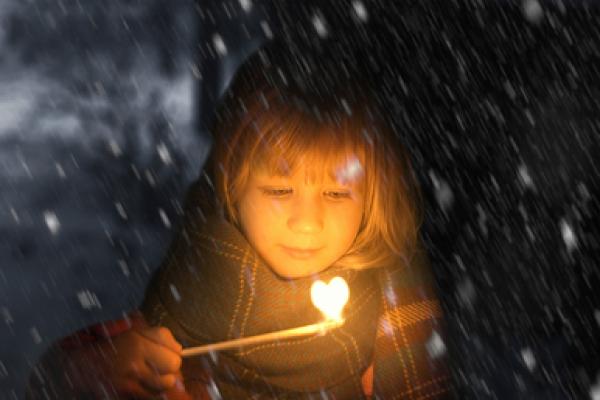I asked a small group of second-graders what they would like to find inside their mailboxes. That was after we read a story about a goose who opened her mailbox and found a kite. I expected to hear answers of things: video games, toys or basketballs. But the first student who raised her hand looked at me with sincere, big brown eyes and said, "I'd like to find a letter from my dad."
In my classroom, my kids say the profoundest things.
As we entered the holiday season, I thought about the answer that student gave me. I thought about what other of my 7-, 8- and 9-year-olds were saying about the holiday season.
For three years, I lived and worked in a large housing project in Louisville, Ky. I was a middle-class, white graduate student, and my background clouded how I saw the people around me. But I finally began to see clearly. It was the week before Christmas, and I was driving a rickety, old orange van around the neighborhood, dropping off children from my after-school program.
The last kid on the van was Shawn. He was a middle-schooler who was equally gifted proving a theorem in geometry or running our community basketball team as the point guard. I stopped in front of his building and looked through the rearview mirror, hoping to see his smile. He had a wonderful smile that usually cheered and brightened my days. That evening, however, he wasn't smiling. His chin was on his chest, and he was looking down at the floor mats of the van.
What's the matter?" I asked. “It's Christmas. Aren't you excited about the presents you're going to get?"
The week of Christmas had always been an exciting time for my friends, my brothers, and me. We knew we would wake up on Christmas morning and find video games, toys, basketballs, clothes, and all of the things that would bring smiles to our faces. It never occurred to us that there were children like Shawn, who would wake up that morning and find nothing.
He slouched over, slid the side door open and slipped out into the cold night without saying a word. His silence spoke to me. I think I saw, with momentary clarity, into his life and into my own. Our ears and our eyes had picked up the distorted sounds and sights of our popular culture that teach us that life and happiness grow from buying and consuming. The question I asked him about presents said, of course everything is all right because soon you'll be getting things. His silent answer to me was — there's not enough money in my house to buy anything, so I must be nothing.
As teachers, we can see our students as little consumers whose purpose in life will be to buy things that will make them happy and that will cause the American economy to grow. I suspect it was easy for my teachers to see me that way in my suburban schools in South and North Carolina.
But how do we see economically poor children? There are more than 15.5 million children living in poverty in the United States. Many of them are like Cesar, who wrote a letter to Santa for himself and his baby sister asking for basic necessities. “This year my mom don't have much money to spend on Christmas gifts so I'm writing you,” he wrote. “It would make us very happy if you and your elves could bring us a few toys, some food and clothes."
I think about Cesar and kids like him as I walk the halls of my school. I remember not to ask, "What are you getting for Christmas?" I remember that our essence is not found in what we get but in who we are.
Trevor Scott Barton is an elementary school teacher in Greenville, S.C. He is a blogger for the Teaching Tolerance project of the Southern Poverty Law Center.
Photo: © noregt | View Portfolio / Shutterstock.com
Got something to say about what you're reading? We value your feedback!
